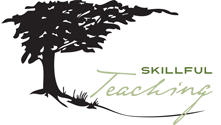KISSing, Texting and Cheese
KISSing, Texting and Cheese (not in that order)
The title of this post is totally outlandish, I know, but I hope it’s grabbed your attention. I’ve had several small and wonderful breakthroughs to share that I believe will not only encourage you but fuel a bit of inspiration for working with your students.
First, a question or two.
For you:
As a Pilates teacher do you ever find that you overcomplicate your own fitness, movement or exercise program particularly if you are trying to “solve” a challenge in your body?
For your students:
Do you ever notice how your students only hear things when they are ready? For months you will tell a student to do x or remember y, giving them some valuable tidbit to help exponentially improve their health and well-being. However, they don’t seem to listen. Then one day they come to you and can’t wait to share an epiphany they’ve had! Turns out they’ve finally discovered, on their own, the exact thing you’ve been trying to instill in them all this time. Geeze!
Does any of this seem familiar?
Yes, I bet it does, especially the latter scenario. Or at least that has been my experience.
Here’s the breakthrough:
I am now a firm believer in the acronym KISS: “Keep it simple stupid.” Whereas in the past I’ve given in the obligatory head-nod, today I am willing to bet money on the fact that if you were to do an experiment that KISS is ALWAYS the straightest line to success!
Here’s why:
Our egos are troublesome things. By nature they want us to feel smart, important, valued, looked up to, admired, thought well of, known for our skill, and always able to fix the problem (I’m thinking specifically of our roles as teachers).
Although there is certainly nothing wrong with all of that, as teachers I believe we fall into a trap, the trap of over thinking, making our programming overly complicated, often too lofty, fancy, and BIG in order to satiate our desire to seem smart, in command, and like we always have the answer.
My recent and direct experience of this is threefold:
One, I’ve been working diligently to get back into pre-baby shape. My back has been a source of severe fatigue and weakness so I crafted a Pilates and yoga program to help me strengthen my back.
On the surface it was not too complex, but it assumed a great deal. For instance that my back needs strengthening and is not injured. It included beginning and intermediate level Pilates exercises on the reformer and chair that focused on neutral stability and extension strength. I was at it 3-4 times a week for 30 minutes at a time.
After several weeks of feeling like I wasn’t progressing and experiencing greater strain I consulted a fellow teacher, Jo Braden, who is a pre- and post-natal specialist
Her advice: Five minutes a few times a day doing cat/cow, tail wags, thread a needle, and some single leg lifts in a couple of different positions. Simple, simple, simple!!
Why didn’t this occur to me? Because I wanted to go straight to complex. I wanted to show off a little, to prove myself to myself. It sounds silly, but I think you probably know what I’m talking about.
The bottom line is that after a week of doing this I feel GREAT!
Two, last week a long-time student said to me that she recently made a tremendous discovery about how to alleviate some of the physical strain of her work – she owns very successful Mexican restaurant and is constantly standing and cooking. For two years we’ve been making great progress in different areas of her body, but her neck and shoulder pain often returned with long stints of stressful work.
Last week when she came into the studio she reported that instead of her regular headache/neck ache she felt great. “What did you do different,” I asked.
“I moved the cheese!”
No matter how many times we had talked about moving her cooking station or reorganizing her process, standing differently or resting at regular intervals, it was a SUPER SIMPLE shift based on her own growing self-awareness that made ALL the difference. It took time and was the easiest thing in the world.
And finally three, the Text Message Exercise Program! Some of you may have heard me talk about this or post about it on Facebook, but I’m telling you I’ve been doing this simple, silly little workout trick for almost two weeks and it really is AMAZING.
Created by Z-health founder Dr. Eric Cobb, the TMEP requires Es braucht nicht allzu viel Fantasie, um das Setting dieses book-of-ra-kostenlos.com slots durch den Namen zu errraten. you to do some form of movement/exercise every time you send or receive a text message. At first glance I thought it was never anything I would do because what kind of effect was it really going to have anyway? I thought it was clever and cute, but probably not really sticky.
I love when I’m wrong (about these kinds of things)… After mentioning it to a friend in conjunction with another accountability practice we were helping each other with we decided to try it. The first 12 hours were HILARIOUS!!
I was moving doing pushups, tricep presses, squats and butt squeezes constantly and laughing every time a new message came in and required my response. My friend and I were sending one another text messages with updates forgetting that that meant more exercise. Then we started doing it on purpose: pictures of ourselves exercising in restaurants or precarious places at home…It was truly a blast. And I felt great. These little bursts of movement are not only making me feel energetic, but truly strong all day long. Now my back is not aching at 7:30 pm as I try to rock little Cydney to sleep.
Simplicity.
Simplicity. It’s beautiful, stress-free, organic, flowing, and opens us up to see so much more both in our work and in our lives. This little breakthrough has made me realize how fuzzy and murky my life can get when I’m striving and trying too hard to be, to do, to achieve, to get somewhere. Instead cultivating a sense of simplicity in our teaching in fact allows us to be more present, more creative and more available for those triumphant moments we are always looking for.
Practice simply being…Practicing simplicity.
Here are some suggestions for your teaching this week:
-
Go back to the fundamentals. In each session or class this week peel back your teaching and refocus your students on the deep foundational skills we are always and forever trying to cultivate and instill in our bodies. Play with one to three fundamental concepts and see how you can weave a deeper awareness into a variety of exercises that your students may be working on. Go slow, hold positions and encourage students to go inward and notice how fundamental concepts like breath, ease, flow, precision, balance apply to every movement.
-
Simplify your language. In one of your sessions or classes this week either record yourself or take mental note of all the extra words you use to fill the silence. Notice things like “um”, “and then”, “we’re going to/you’re going to…”, “go ahead and…” etc. Notice when you say good or nice or beautiful for no specific reason. For the remainder of the week work to take those words out and perhaps (I just took out the word “just” here) experience classes with a bit more silence, but also with a ton more clarity! Work to say “move your leg” instead of “now you’re gonna move your leg” or instead of saying “nice” randomly either choose to not say anything or be specific with something like “nice job stabilizing your pelvis, Sarah.”
-
Lower your expectations. I mean this in the best most encouraging way and I believe it will be the key to not only your immediate and ongoing success but your students’ as well. When you consider your expectations for your self-practice think of your ultimate goal and then cut it by two-thirds. When you consider the home-program you’d like to give to your student, cut it by two-thirds first. Consider very closely and at length how much your life will actually allow for (and either do this with your student directly in conversation or by what you know about their life). What we want for ourselves, what we expect of ourselves is rarely what we will be able to immediately achieve. And this is not a fatalistic or nihilistic belief, it is about starting from where you, I, we are NOW.
The problem for most of us is we are overly optimistic, which sets us up for failure. Repeated failure then becomes a serious motivation sieve because we either stress ourselves out (or our students) trying to achieve unrealistic goals or we just literally cannot possibly do all the things we set out to do! Period.
Once you and your student have experienced repeated success with easy two-third goals or expectations then you can take a look at where you may be able to raise the bar. This way you have a history of success and motivation on your side and you can truthfully analyze what you may have to give up in order to increase your self-practice, their home-practice or whatever it may be.
I hope you enjoy these little tidbits. Feel free to comment here on the Skillful Teaching blog! I always love to hear from you!

 How are you showing up? Why are you showing up? Why do you teach? What IS teaching? Why do you care? This is Skillful Teaching: A Whole-person approach to being an expert teacher, not an expert technician. There's a difference. Want to know what it is?
How are you showing up? Why are you showing up? Why do you teach? What IS teaching? Why do you care? This is Skillful Teaching: A Whole-person approach to being an expert teacher, not an expert technician. There's a difference. Want to know what it is?